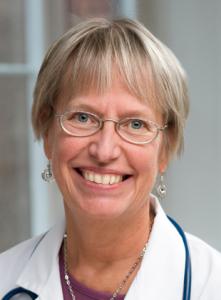For me the last month has been exciting. There are twenty-six experts with personal pages in the Open Future Health website. I've written to each of them, asking them to proof read their pages. In response I've had some delightful letters and few suggestions for minor edits.
I was especially pleased when Prof. Noakes PA, Megan Lofthouse proof read some of my pages, and offered useful small edits. Then she wrote: "All in all I think your website is amazing and the information you have collated is wonderful. Thank you so much for all the time and effort you have put into it and thank you for contacting us about your content."
You can see the relevant section in Dr Noakes' trial.

Dr Annika Dahalqvist
Dr Trudi Deaken, wrote that she is now eating only two meals a day. Many people on the Banting diet slowly move in that direction. It's certainly happening to me. I think I made a mistake of trying to force that to happen, a few months back. That's a mistake. When you get fat adapted, and when you get the diet both right and stable, the desire to have lunch melts away.
Professor Thomas Seyfried writes:
"Thank you, John, for highlighting my work. You did a great job in covering key issues."
"We now know that cancer is not caused by mutations. The mutations arise effects of abnormal cellular energy metabolism and are not the drivers of the disease. The disease arises from a disturbance of mitochondrial energy metabolism."
"I can recommend a few changes."
He then offered a rewrite of two of my paragraphs, and gave me assess to the scientific paper that explains his Press-Pulse cancer treatment. These changes have been incorporated on his page. This is enormously important. The Banting diet, gives some protection against the re-development of cancers. Perhaps more than that, but I'm careful not to overstate the case.
I heard a dietitian on NZ TV One, telling people that they must keep up the fibre in their diets to avoid constipation. My own doctor told me to keep up my fibre intake on this diet. I'm sure they are both wrong.
When you first begin a Banting diet your bowel motions may be a little irregular. Made worse because your new pattern of eating is not well established, sometimes you do, and sometimes you revert to your old eating pattern. Then there's a delay of about 12 hours between eating and defecation. As you enter ketosis you excrete water, you pee frequently, and your feces can also be excessively wet. It will settle down.
I worried a little about the lack of bowel motions. On a Banting diet there is very little to defecate. If you are concerned, keep up the intake of butter or coconut oil. There is zero need to eat fibre. Excess fibre just ferments in the gut, causing problems.
The Noakes Foundation - 37 new videos
Doctors and dietitians in New Zealand, Australia, Canada and South Africa, are constrained by a professional protocol when it comes to recommending a diet. Doctors are supposed to refer you to a dietitian. They may suggest that you follow the diet recommended by the NZ Ministry of Health (Or the equivalent in your country). To recommend a Banting diet, or a Low-carbohydrate High-Fat diet has the potential to land one in court or facing cancellation of your practise certificate.
That's exactly what happened to Dr Tim Noakes. There's great value in reading about that. You can see where the challenge against him came from, and Dr Noakes' spirited defence of his position.
In Sweden, this battle was over 10 years ago. Dr Annika Dahlqvist was put on trial, for recommending a diet she herself had used, LCHF. The Swedish Experts Committee, two years later declared that her practise was scientifically justified and to be recommended.
There's a rather strange situation in the United Kingdom. The law is essentially the same as in NZ, Australia and South Africa. But there is "wriggle room" according to award winning diabetes expert, Dr David Unwin. If the patient wants to try a very low carbohydrate diet, the doctor can try to assist him/her in that process. Respecting the patients view is encouraged. This is "patient led medicine." So Dr Unwin has won NHS awards for both patient care and cost cutting, by assisting patients to eat a LCHF diet, but on their request. Given that recognition, it's unlikely anyone in the UK, will now be charged with unprofessional conduct, or malpractice, for recommending a Low-carbohydrate High-Fat diet.
Presenting Quality Information
It takes a lot of time to watch more than 11 hours of video and take notes. Some 30 hours I expect.
Then you are so crammed full of new material that you need to step away from it a little and let the new knowledge seep into your understanding. In my blog, on the website, and in this newsletter I want the information I share to be worthy. Worthy of me and my integrity, worthy of the people I quote as experts, and worthy of the people who might read and use the information I've collated. You can encourage other people you know to sign up for this newsletter. (They won't do it. but encourage them anyway.)
One wonders why a well known and respected person like Dr Tim Noakes, ends up in court fighting for his professional reputation. The answer is, that the traditional medical and scientific establishment wanted his public image to be damaged, and his science discredited. On his part, Dr Noakes is up for that fight. That's something he's done several times before, in his professional career. "New science is always opposed, eventually it has to stand or fall on the evidence." His book "Challenging Beliefs: Memoirs of a Career" documents several crusades during his professional career.
This reminded me of the Monkey Trials in the USA, in the 1920's. Both sides wanted to "win" and after the trial both sides claimed victory. But there's another example too. Close to home and well known in New Zealand. I'm thinking of the "Heresy Trial" of Dr Lloyd Geering, held in Christchurch in 1967.
From Wikipedia: "Lloyd Geering was tried in 1967 by the Presbyterian Church of New Zealand for doctrinal error and disturbing the peace of the church. The trial was televised in New Zealand, but the General Assembly of the Presbyterian Church of New Zealand judged that no doctrinal error had been proved, dismissed the charges and declared the case closed."
The Fault in Each of Us - Cognitive Resistance
I've often wondered why, of the hundreds of people I've told about my blog and this newsletter, only a tiny number have bothered to register on the website for this newsletter. They make the decision that they don't need to know about some unusual diet. "Not interested."
I've just finished reading "The End of Illness" by Dr David B Agus, a cancer specialist. He's very strong about eating real food, and about never using a juicer. Smoothie's should not be part of your diet. He quotes Jeremiah Morris saying, "Exercise is the best buy in public health." His own statement is: "Societies failure to apply modern knowledge of the normal aging process should shame us." In the last chapter he says: "Illness is largely preventable." But to do that the medical system has to change and we have to change. Each of us, has to be responsible for his/her own health. "Not being interested" will have consequences. The current medical system under-performs because diagnosis and treating symptoms, is what it does best. Preventive care would be desirable, but that is only possible if patients present themselves in a different way.
So why can't we do that? I think the problem is here. We all believe that the lifestyle we live and the personal choices we make, are good choices. Perhaps not the most healthy choices possible, but fully justified choices based on the options one knows. NONE of us want to be told that our choices are poor. NONE of us want to be told that out health knowledge is faulty. NONE of us want to be told that our dietary choices are making us obese, sick for many years before death, and robbing us of ten years of healthy lifespan. So when new information is imagined to be threatening to our current beliefs, we choose not to know.
Dr Joanne McCormack, tells of avoiding reading the book "The Great Cholesterol Con" by Dr Malcolm Kendrick, because she knew he was very critical of the profession she loved. But when she read his book, she was very pleased to agree with him, on many issues. That opened the way for her to read more and to change her own knowledge about many things. That has changed the way she works and advises her patients.
I have an experience like that too. At university I studied economics. Karl Marx was often recommended as a text, but I've never read him, except for a few pages that were part of an assignment. My father was strongly anti-communist, and my aversion to Marx, which is entirely irrational comes from there. So I understand why "I can't read that" might be someone's response to the website and the blog.
The key to this problem is not really in the individuals. It's in our whole society. If overcoming obesity, non-alcoholic fatty liver disease and metabolic syndrome is to happen, the whole society needs to change. But right now, it's one person at a time.
What Did You Eat Today?

I'm amazed at the variety of meals my wife Carolyn keeps producing, while avoiding potatoes, flour, bread, rice, and pasta. There are hundreds of recipes online, but for us too many of them use artificial sweeteners. In our view that's completely unnecessary. If you use a sweetener, STOP. In four or five days you won't notice that it's gone, your taste buds adapt very quickly to the diet you choose.
With regard to Banting there are two ways to do it. If your objective is just to lose weight, that's easy. Cut your carbohydrates to less than 130gm a day, and your weight will slowly fall. Some people claim that they are doing that, but without success. I expect that they don't understand what carbohydrates are, and they need to write down everything they eat and check online what the carbohydrate content of that food is. I use a programme called NUT Nutrition Software if I want to check things like that. There are commercial products available. If you join the Real Meal Revolution, they have an online meal analysis system. Or you can use printed sheets: Like this one from the Ottawa Hospital Canada, or this one from "Mom's Team"

Half this tree is on the ground already.
The second way to do Banting is to aim to be in ketosis. Carolyn and I are consistently there, now. It's more effort, but there are rewards beyond weight loss. Better sleep, improved eyesight, more energy, increased ability to undertake heavy exercise or work, and much better recovery after heavy effort.
I can demonstrate that. The tree above is still at full height, but we've already been working for two hours, to the right behind the garage more than half the tree is already down. It took us four hours to take the tree from 8 metres to 3.5 metres. We're not used to heavy work, we go walking and dancing, but upper body strength is not a characteristic either Carolyn or myself would claim. At the end I four hours I was "done." I'd felt quite tired for over an hour, and my hands and shoulders were aching. We both had the stamina to last for four hours, that's a bonus. Because ketones burn cleanly, I hoped there would be minimal ROS damage to the muscles, and we would be OK.
I said to Carolyn as we had a cup of tea, "We won't be sore tomorrow, our ketones will protect us."
She scoffed, "How can you know that. Ketones can't do everything."
We were going dancing that night. First, we slept for 90 minutes, and had a meal. Later we danced for three hours. The following day, Saturday, neither of us had any muscle soreness. During the night I had some trouble with my knees, just gentle aching, and tingling. Some repair process was going on. Fine in the morning. So bonus two, quick repair of the muscles and joints after exercise. Athletes are using these features of a ketogenic diet, but even for old guys like Carolyn and myself, there are distinct benefits.
There are also other anticipated benefits; not proven yet, I'll tell you in 20 years if it's really works like this. But my main objective in seeking ketosis is protection against both Parkinson's disease, and Alzheimer's disease. There is also protection against cancers, not an elimination of cancers perhaps, (although that may happen) but a strangle hold on the ability of cancers to rapidly grow.
Dr Thomas Seyfreid writes: "The tumor cells are dependent on glucose and the amino acid glutamine for growth. Cancer patients can now use ketogenic diets and certain procedures that block availability these metabolite's to the tumor. Cancer patients can be empowered to help manage their disease."
And, unexpected, I found this out from Dr Richard Veech recently. If I'm in ketosis and I have an accident involving head trauma, the supply of ketones will protect my brain from after trauma injury. (That also applies to nuclear radiation exposure, but I don't expect that to happen.) Much of the heating of the brain and the swelling that occurs after an injury is caused by the inability of brain cells to get enough glucose. The PDH gateway is inhibited by the trauma. The brain starves, and brain cells die. But ketones don't go through the PDH gateway, and they can supply 80% of the brains energy. So if you are in ketosis when injured, you have some protection against the after trauma brain swelling and heating that usually does more cellular damage than the original impact.

After four hours heavy work.
Ketones allowed quick recovery.
It's Not Your Fault
Schooling and Deschooling
We are who we are. We know what we know. Our history is our history. I'm proud to be the person I have become. This is as it should be.
However, that's not the end of the story. The question is, Who is the person you intend to become?
Is that person, happy and healthy and engaged in the community? Is that person aging in an appropriate way, or did he or she age too early, become sick for many years and even then die too young.
The Dunedin Study shows that as a community we tend to be biologically older than our chronological age. The median biological age was up about six years. The oldest people were biologically twice their actual age. The number of people who were biologically six or more years younger than their chronological age was tiny.
In "The End of Illness" by Dr David B Agus, he writes that our future health can be planned, and the objective of your visits to the doctor, should be to improve the quality of that plan. Medical testing should be used help develop that plan as a protection against future illness.
However, that requires us to vastly improve our own knowledge, to know more about ourselves, to know much more about nutrition, to be more knowledgeable about the value of the exercise you do. Dr Agus recommends that we maintain a health diary, that we keep our own health records, not relying on the doctor to do that. He says we should visit the doctor with a better health plan in mind, and engage his/her help in developing that plan.
So what do you want for your own future? Is the health you have "normal," and what is normal health anyway? Too often we accept "normal for my age"; being overweight, physically diminished, and lacking enthusiasm for life. Dr Joanne McCormack asks, "Have you lost your sparkle?" Too many of us have.


